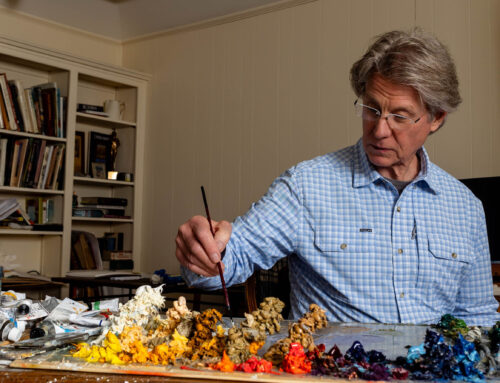Since its beginning, the
A big reason why is because of people such as Lake Highlands resident Gerald Deats, one of three who helped found the center more than a decade ago.
Over the years, Deats’ role within Dallas CAP has expanded, from treasurer to vice president to president. He has helped organize new and needed programs, and now he’s the primary organizer of the center’s golf tournament, which raises about $40,000 a year.
Deats has done all this while working for the Bank of America, raising two sons, being involved with PTA and Scouts and coaching his kids’ baseball, basketball and soccer teams.
“Anything our kids have been involved in, we’ve been involved in,” he says of he and wife Ida.
It’s because of Deats’ dedication to Dallas CAP, despite an otherwise hectic life and schedule, that he’s being honored this month with the center’s Spirit of Compassion Award.
CAP Executive Director Margaret Patterson cites Deats’ “determination, innovative style, and long-term commitment” as reasons why he was chosen for the honor.
“The children and families he has assisted through his support of the
Deats involvement with CAP began on a whim. He’d just joined the Exchange Club of Lake Highlands in the early 1990s when a fellow member made an appeal for volunteers to help start a
“A lot of people in this business have personal reasons to get involved, but I was lucky to come from a pretty normal family,” he says. But, he adds, “after getting involved and understanding the magnitude of the problem — well, it just tugs at you.”
Deats says he’s honored to now be included with past winners of the award, and he hopes that he and others can inspire more to become involved.
“Through education and support, these folks can learn the better way to raise a child than what they learned from their parents. And more than that, they can become a really viable contribution to society,” he says. “Go find a way to get involved with this thing, whether with the CAP center or as a foster parent or some other role. Understand it’s a fixable problem, and that you can make a difference in a person’s life that is a lasting difference.”
That’s something, he adds, that already happens in our neighborhood frequently.
“The strength of our community is we have a lot of people that are willing to get involved, whether it be the Exchange Club or the Women’s League or the people who get involved in the schools. I’m not unique. There are 100 other people out there that do just as much as I do, and that’s really refreshing.”





